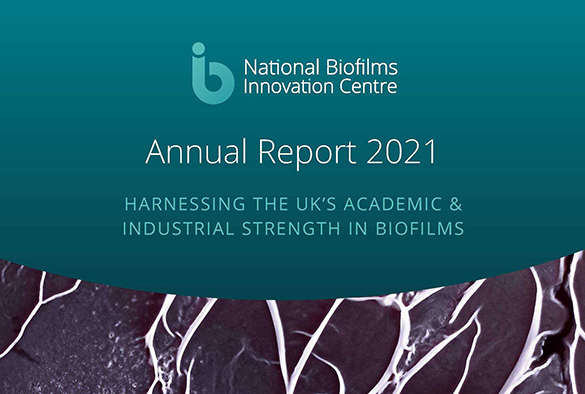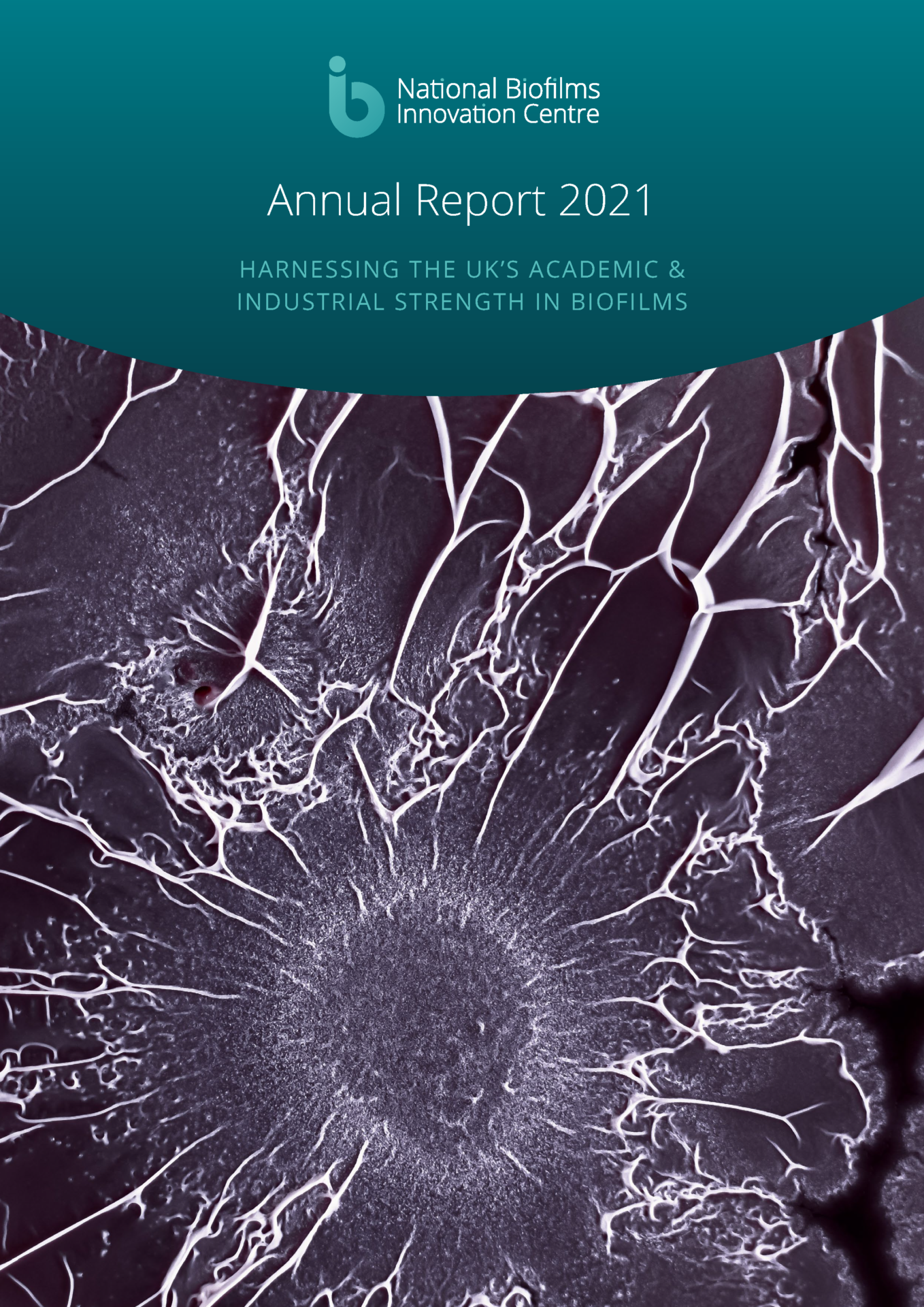NBIC Annual Report 2021

The National Biofilms Innovation Centre (NBIC) Annual Report 2021, of which the University of Liverpool is a core partner, is now available to download. The report covers key achievements to date, future plans for policy, case studies, international strategy and all of the Proof of Concept (POC) projects funded by NBIC.
Foreword – A few words from CEO, Dr Mark Richardson
The National Biofilms Innovation Centre (NBIC) enters its fourth year still very much focussed on supporting and connecting the industrial and academic biofilm community across the UK and with our international partners in the USA, Singapore, India and Europe. NBIC’s intent remains to behave in a national, inclusive and transparent way to benefit our community. We judge ourselves by our ability to harness and translate the capability, knowledge and technology in the prevention, detection, management and engineering of biofilms across the UK. We believe we are having a significant impact across all these dimensions as you will see in this report. We recently updated our market impact report and estimate the value in the UK of addressing biofilm opportunities and challenges is $45bn (and $4tn globally).
I am delighted that our membership has further grown to 63 UK research institutions and that these academic partners share our desire to collaborate and connect with the (approximately) 250 companies we continue to talk to across a range of sectors.

NBIC ANNUAL REPORT 2021
The last year has been immensely challenging for everyone. Despite circumstances, we have been able to continue to communicate with companies and academics via webbased tools and we have also held several well attended webinars in conjunction with groups as diverse as the Society for Applied Microbiology (SfAM), the India Biofilms Society, the Singapore National Biofilms Consortium (SNBC) and Cosmetics Cluster UK (CCUK).
At heart we aim to connect unmet industrial and commercial needs and possible scientific or technological solutions that may exist in our partners. We do this both through personal introduction, and by sharing needs and solutions across our network. We endeavour to build on three key pillars that our funders (BBSRC, Innovate UK and the Hartree Centre) have asked us to establish, namely:
Research
Our funding has allowed us to continue to support our cohort of Interdisciplinary Research Fellows (IRFs) across our four core universities. They are all actively engaged in a mixture of underpinning research, and projects with industry partners.
Innovation
This year we ran our fourth Proof of Concept (POC) call, with a record number of applications from which we awarded 18 new projects. This brings our portfolio to 81 POC projects funded from 207 applications and an NBIC (on behalf of UKRI) investment of £4.4m, with a total of £6.7m value when company contributions are included. As our first projects finish, we are now tracking the impact of these on the translation of technology. In addition, we have run four themed workshops resulting in policy papers and multiple industry and academic collaborations and connections. If circumstances allow, our fifth workshop will run later this year. All of this innovation activity is supported by a core NBIC team including three field-based sector specialists who visit and connect our partner companies and research institutions.
Training
We continue to build our cohort of PhD students across our four core universities, for whom we are running a core Doctoral Training Programme (BITE). It is very clear that everyone involved in biofilms across the UK remains jointly committed to our vision of delivering both breakthrough science and technologies to control and exploit biofilms, and to inspire the next generation of research leaders and entrepreneurs.
You can download the full report by clicking here.